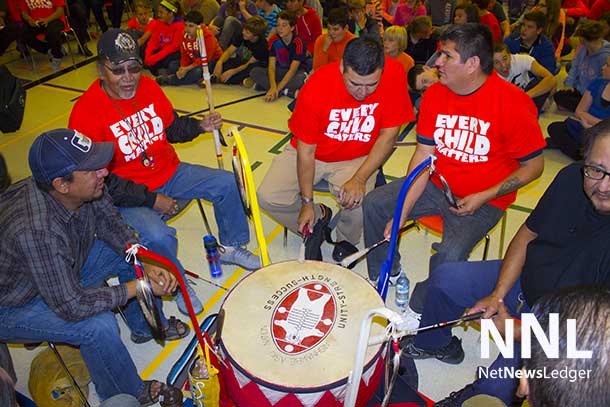OTTAWA – The Government of Canada is committed to reconciliation and ensuring that the tragic history and ongoing legacy of residential schools is never forgotten.
Marc Miller, Minister of Indigenous Services says, “The residential school system is a national tragedy borne by colonialism and propelled by systematic racism. Acknowledging this past and educating Canadians about the experiences of Indigenous children in these schools will ensure that this history is never forgotten. It is an important step toward in righting past wrongs. The introduction of Bill C-5 is a step forward in the healing process of the survivors that were harmed under the federally operated residential schools system. Today is a day for commemoration and a day for Canadians to hope for a better future as we acknowledge a shameful past. Let us forever banish the racist ideology that allowed it to exist and happen. Let us honour the children who survived residential schools, and those who did not, by working together toward a renewed partnership built on respect, dialogue and recognition of rights.”
Steven Guilbeault, Minister of Canadian Heritage, announced an important step in implementing the Truth and Reconciliation Commission’s Call to Action #80 by introducing Bill C-5. This bill seeks to establish a National Day for Truth and Reconciliation for federally regulated workers that will be observed as a statutory holiday on September 30.
“We have taken steps to address the Truth and Reconciliation Commission’s Calls to Actions. However, we recognize that there is still much work to do as a country to make progress on our shared path of reconciliation. This includes acknowledging the harm residential schools have done to Indigenous Peoples. By establishing a National Day for Truth and Reconciliation, we will have a day every year to reflect and honour the survivors of residential schools, ensuring they are never forgotten,” says Guilbeault.
Subject to this legislation receiving Royal Assent, the new national day will honour survivors, their families and communities. It will also ensure that public commemoration of the tragic and painful history and legacy of residential schools remains a vital component of the reconciliation process.
This important announcement builds on the Budget 2019 announcement to provide $7 million over two years for communities across the country to commemorate the history and legacy of residential schools. In 2019–2020, the Government of Canada invested in six large national projects to educate and raise awareness about this dark chapter of Canadian history.
“We thank the Commissioners of the Truth and Reconciliation Commission for charting a path forward for all Canadians. Today is another step in our journey to advance reconciliation, right historical wrongs and reflect on how we can build a more inclusive Canada. A National Day for Truth and Reconciliation will ensure that our shared history will not be forgotten. Advancing reconciliation with First Nations, Inuit and Métis requires all Canadians to listen, learn and act,” states Carolyn Bennett, Minister of Crown-Indigenous Relations.







